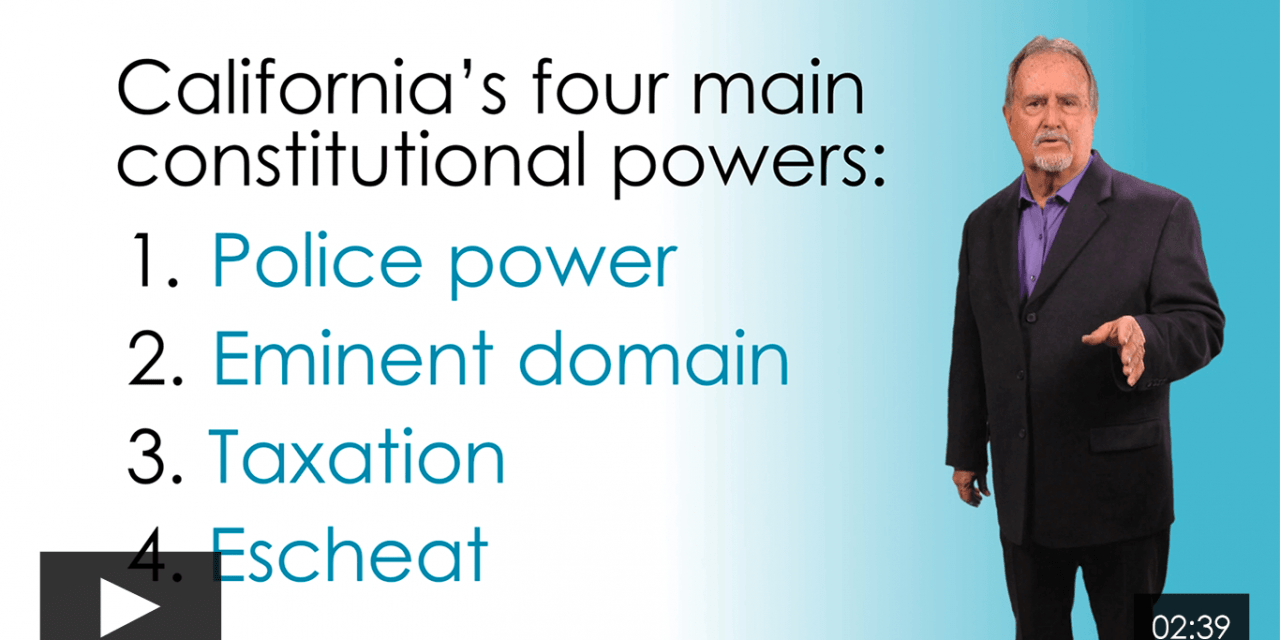For the prior video in this series covering the establishment of the land commission, click here.
Four main constitutional powers
The authority of the California legislature to enact laws regulating real estate activities comes from four main constitutional powers:
- police power;
- power of eminent domain;
- power to tax; and
- escheat, the reverting of property to the state when the owner dies and there are no capable heirs to inherit it.
These four powers can be memorized using the mnemonic device PETE.
The U.S. Constitution confers on California the right to enact laws to protect public health, safety and welfare. [U.S. Const., Amend. X]
The California Constitution confers an equal power to local cities and counties to likewise protect the public good. [California Constitution, Article XI §7]
This power to protect the public well-being is called police power
Police power is the basis for laws governing such things as highway construction and maintenance, rent control, zoning and traffic. [Village of Euclid, Ohio v. Ambler Realty Co. (1926) 272 US 365]
A statute or ordinance passed under the government’s constitutional police power and affecting real estate-related activity is valid as long as the law:
- is fair and reasonable;
- addresses a legitimate state interest;
- does not unreasonably burden the flow of interstate commerce; and
- does not conflict with related federal law.














